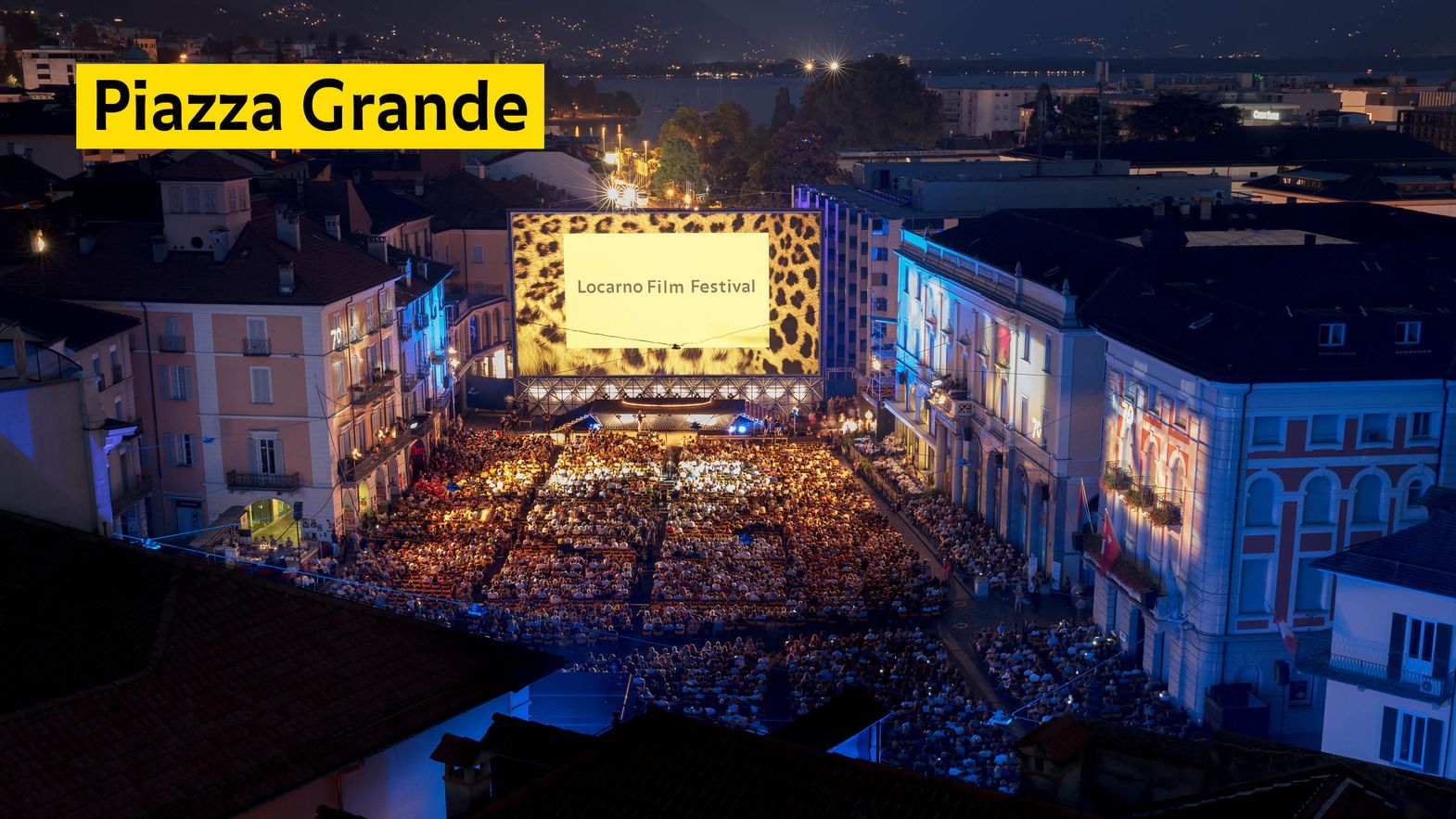
It's going to be eleven unmissable nights. The Locarno Film Festival is the Piazza Grande, its huge screen and the black and yellow area that can be occupied by up to 8000 upward faces every night.
During Locarno72, the Piazza line-up will be the usual triumph of cinema, eager to please all interests. The kick-off, on Wednesday 7 August, could only be a debut, that of Ginevra Elkann: with Magari, she will bring along Richard Scamarcio and Alba Rohrwacher, the stars of the story of an Italian family dealing with a separation in the early 1990s. After that ice-breaker, it will be time for 18-year old Lise, as she's accused of murdering her best friend (La Fille au bracelet, by Stéphane Demoustier) preceded by the gestures and the brush strokes in 16 mm of Basim Magdy, the Egyptian artist who takes the real world and reshapes it with hippos and squids (New Acid). There will be the customary rendez-vous with suspense with the film 7500 and Joseph Gordon Levitt, who will introduce Patrick Vollrath's film in the Piazza, or in the middle of Africa with Camille, a photojournalist caught in between the strength of an ideal and the violence of a civil war, brought to the screen by Boris Lojkine. Also caught in the middle is Maud, the architect in Valérie Donzelli's Notre dame, entangled in an accidental win and dealing with feelings on the rise. Those feelings, that take ones' breath away and light up passions, are similar to the ones found behind the bars of a prison dominated by Nicoline and Idris: she's a psychiatrist, he's a rapist, and they both feature in a story of intelligence and psychosis (Instinct, by Halina Reijn). In Piazza Grande then will close a trilogy, the schizophrenic and solitary trilogy of Fabrice du Welz, uses Adoration to end a journey of madness and love that began in Calvaire and continued in Alleluia. Only the Piazza Grande could contain the 500 hours of unseen material the family of the Pibe de Oro entrusted to the storytelling skills of Asif Kapadia for his film Diego Maradona. Anything else? Yes, laughter and fear. The laughter of the Daniel's schizophrenic summer spent between Metallica music in his headphones and a librarian mother at home (Days of Bagnold Summer, by Simon Bird) and the fear in the grand finale with Japanese horror maestro Kiyoshi Kurosawa crossing the West with To the Ends of the Earth, and then there's the 160-minute night of Quentin. Tarantino, that is, with the star-studded two-and-a-half hours of Once Upon a Time... in Hollywood, featuring Leonardo DiCaprio, Brad Pitt, Dakota Fanning, Al Pacino, Kurt Russell, Luke Perry and many others. It's one night that's worth eleven, and eleven that are worth a Festival.
Naturally, it couldn't end like this. There's also Crazy Midnight, the second screenings on nights that are worth double, with 16:9 madness and a desire to rewrite the cinema rulebook. The nigths of Cecil B. DeMented directed by Pardo d'onore recipient John Waters, the wonderful insanity of Die fruchtbaren Jahre sind vorbei by Natascha Beller, the South Korean hit Salinui chueok Memories of Murder, by BONG Joon-ho, of THE NEST (Il Nido) by Roberto De Feo, of Greener Grass by Jocelyn DeBoer and Dawn Luebbe and of Coffy by Jack Hill.